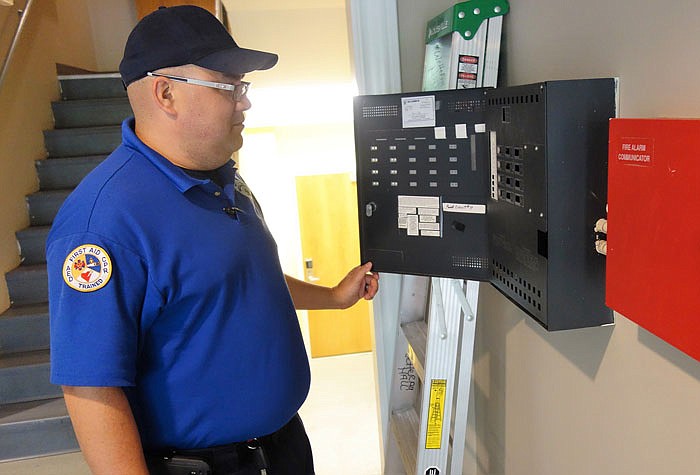Westminster College and William Woods University are preparing to keep their students safe this school year.
In a few weeks, college students from all over the world will make their way back to Fulton. Having thousands of students, both colleges are faced with the challenge of making sure they are safe.
"We train everyone; it's something that's ongoing," said Mike Wills, director of residential life and campus safety at William Woods. "We are working on a training schedule to where we review what everyone's roles are."
Making sure students are secure involved focusing on a wide array of scenarios from shootings to inclement weather. Each year, security officials train the resident advisors, who report to school a few weeks earlier than their peers.
"Next week, we will get with the resident advisors, and they will train on the policies for alcohol, active shooter and weather," said Geoff Crosby, director of campus safety and security at Westminster. "We will make sure they are on board with what needs to happen."
Both colleges also focus especially on educating the new freshmen, starting with a new student orientation earlier this summer, Crosby said.
"Basically, a week or so after school was out, incoming freshmen and their parents were invited on campus, and I spoke to them," he said. "They just need to be educated. I'm doing a freshman orientation this year, and I'm covering all that stuff, making sure rooms are secure and touching on campus shooters."
People may not realize how extensive the emergency plan at the colleges are, Wills said.
"First, we have a fairly extensive emergency operations plan," he said. "We also have over 50 faculty and staff that have gone through a FEMA course."
The emergency operations plan doesn't only include how to react to scenarios but also how to recognize them before they happen, Wills added.
"We have several objectives. I do what I can to see the potential warning signs," he said. "We have behavioral intervention teams that gather information and intelligence."
With the recent public shootings around the country, schools need to be focused on how to react to an active shooter, Wills said.
"Run, hide, fight is the best practice. That's the one that's most well-known," he said. "Getting away, hiding if you need to, and if you are stuck and don't have any other choice, fight."
Something students need to remember, Will said, is everyone needs to be prepared for these scenarios anytime, anywhere.
"This could happen anywhere, whether they're here at school, at home or in the community."
"Above all, students need to talk to someone when they see something peculiar, "Wills said.
"Students need to be comfortable reporting so we can identify these early warning signs."
In addition to larger-scale threats, Wills said students should be aware of security in residence hall rooms.
"I'd say their biggest threat is that they don't leave their rooms secure," he said.
Crosby said it's always recommended for students to pay attention to their surroundings.
"Have a good time in college, but be safe and aware of your surroundings."

